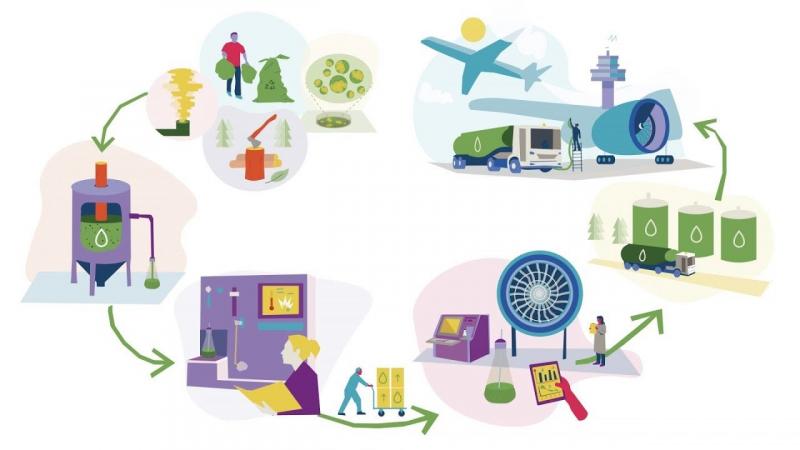Sustainable Aviation Fuel Market: Meeting the Airline Industry's Sustainability Goals
As the aviation industry grapples with the urgent need to address its environmental impact, sustainable aviation fuel (SAF) has emerged as a key solution to achieving sustainability goals. Airlines worldwide are increasingly recognizing the importance of transitioning to SAF to reduce their carbon footprint and align with global efforts to combat climate change.
The primary goal of adopting sustainable aviation fuel is to reduce carbon emissions from aircraft operations. SAF can achieve up to 80% reduction in lifecycle carbon emissions compared to conventional jet fuels. As airlines strive to meet emissions reduction targets, SAF provides a viable pathway to significantly curtail their carbon footprint, thereby contributing to the global fight against climate change.
The aviation industry has faced growing pressure from customers, investors, and the public to take action on environmental issues. By investing in SAF and incorporating it into their fuel mix, airlines can demonstrate a commitment to sustainability and corporate social responsibility. Embracing SAF aligns their business practices with societal expectations, enhancing their reputation and attractiveness to environmentally conscious travelers and investors.
Several governments and international organizations have introduced regulations and policies to curb aviation emissions. Airlines that fall under stringent emission reduction targets are actively seeking ways to comply with these mandates. Transitioning to Sustainable Aviation Fuel Market not only enables airlines to meet regulatory requirements but also shields them from potential penalties and sanctions for non-compliance.
The reliance on fossil-based jet fuels poses risks to airlines due to price volatility and geopolitical uncertainties. By diversifying their energy sources through SAF adoption, airlines can reduce their exposure to the volatility of oil markets and secure a more stable fuel supply. Additionally, SAF can be produced from a wide range of renewable feedstocks, providing further energy security.
The sustainable aviation fuel market presents a unique opportunity for technological innovation and investment in the aviation sector. As airlines commit to purchasing SAF, it incentivizes researchers and entrepreneurs to develop more efficient production methods and novel feedstock sources. This cycle of innovation can drive down costs and improve the overall sustainability of the aviation industry.
The Sustainable Aviation Fuel Market offers a critical avenue for the airline industry to meet its sustainability goals and contribute to a greener future. Embracing SAF not only reduces carbon emissions and complies with regulatory requirements but also enhances airlines' corporate social responsibility, drives technological advancements, and secures a stable and diversified fuel supply. By collectively supporting and investing in the sustainable aviation fuel market, the airline industry can play a pivotal role in mitigating climate change and shaping a more sustainable future for global aviation.
